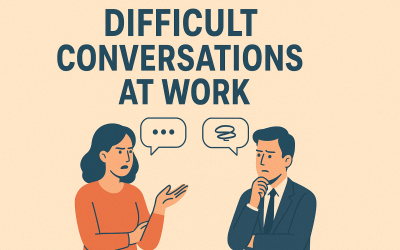Conflict: A Necessary Catalyst for Growth
While it may seem counterintuitive, conflict can actually be a positive and necessary force in our lives. When people have differing beliefs, opinions or needs, it’s natural for some level of conflict to arise. Rather than viewing this as something to be avoided at all costs, we should recognise the valuable role that conflict can play in our personal growth and the development of stronger, more meaningful relationships.
Different perspectives
Conflict challenges us to re-examine our own perspectives, encourages open and honest communication, and can ultimately lead to a deeper understanding of one another. By embracing difficult conversations and navigating conflicting viewpoints, we open ourselves up to new ideas and opportunities for growth. This process can foster creativity and innovation, as diverse perspectives are brought to the table and new solutions emerge from the synthesis of different viewpoints.
Conflict Management
Of course, conflict must be managed thoughtfully to ensure it remains constructive rather than destructive. But when approached with empathy, respect and a genuine willingness to understand the other side, conflict can be a powerful catalyst for personal and collective development. Far from something to be feared, conflict is a natural and necessary part of human interaction. By welcoming it as a chance to learn and evolve, we can harness its transformative potential.
Conflict Skills
Navigating conflict successfully can also build resilience and emotional intelligence. It teaches us valuable skills such as active listening, empathy, and compromise, which are essential in both personal and professional settings. As we become more adept at handling disagreements, we also become more confident in expressing our own needs and boundaries, leading to more authentic and fulfilling relationships.
Workplace conflict
In the workplace, constructive conflict can drive organisational growth and prevent stagnation. It challenges groupthink, encourages critical analysis of established practices, and can lead to improved decision-making processes. Teams that can effectively manage conflict often outperform those that avoid it, as they’re better equipped to address challenges and adapt to changing circumstances.
By embracing conflict with a growth mindset, we can uncover underlying issues that may have been overlooked, leading to more comprehensive and innovative solutions. This process can foster creativity, build resilience, and strengthen our ability to communicate and collaborate effectively. Ultimately, conflict is a necessary catalyst for personal and collective growth, and should be welcomed as an opportunity to learn, evolve, and become better versions of ourselves.
Conclusion
Let’s start looking at conflict differently and acknowledge the important role it plays in our lives. Learning the skills to manage conflict will help you lead a better life.
More From This Category
Difficult Conversations at Work: A Script for Leaders
Master difficult conversations at work with proven scripts and frameworks. Turn challenging discussions into opportunities for growth and trust
The 5 Conflict Management Styles: A Leader’s Guide to Workplace Harmony
Discover the five conflict management styles through a real leadership story. When to avoid, compete, accommodate, compromise or collaborate.


